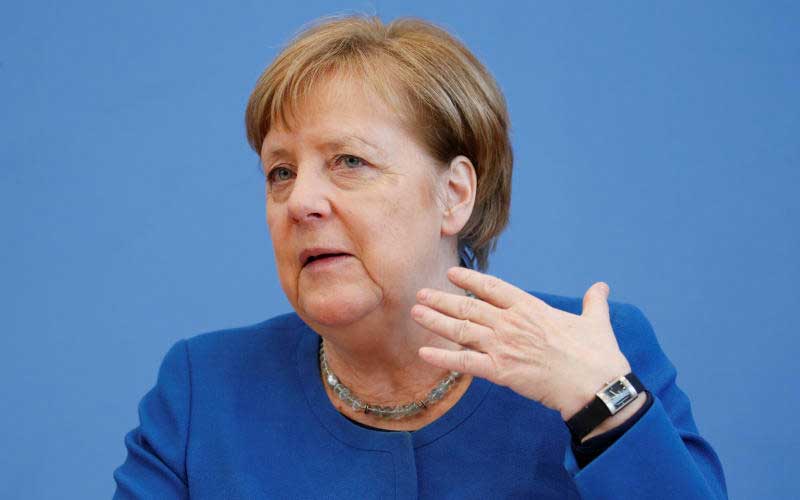×
The Standard e-Paper
Fearless, Trusted News

German Chancellor Angela Merkel addresses a news conference on coronavirus in Berlin, Germany, March 11, 2020. [Reuters]
Germany is often referred to as a positive example of how to manage the Covid-19 pandemic. We were successful in preventing the overburdening of our health system. The curve of infections is clearly flattening. And the proportion of severe cases and fatalities is lower in Germany than in many other countries. But this makes us humble, rather than overconfident.